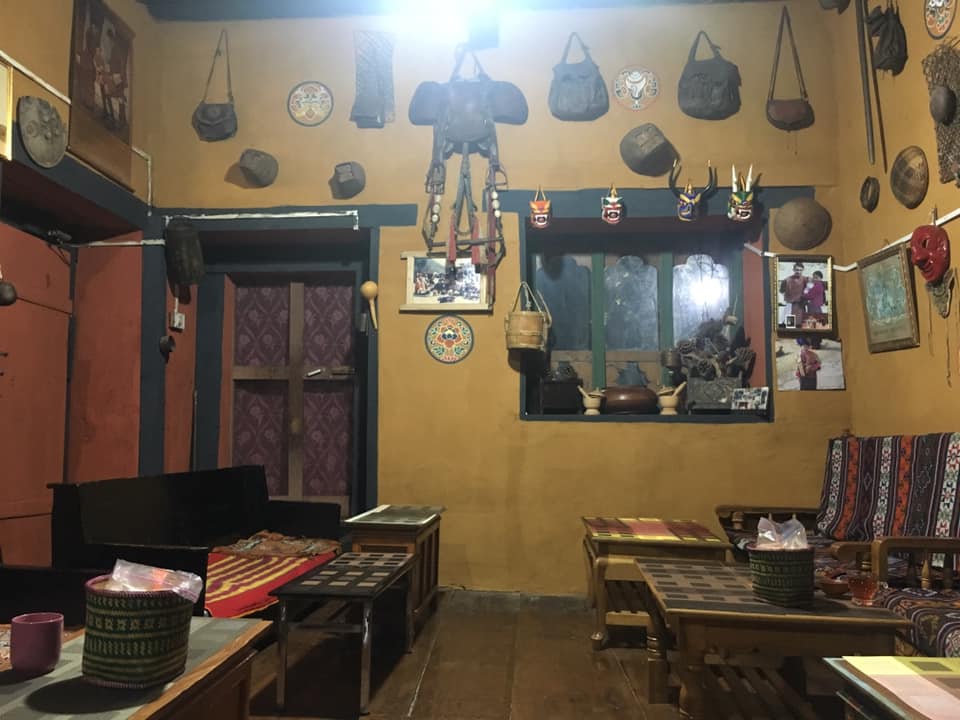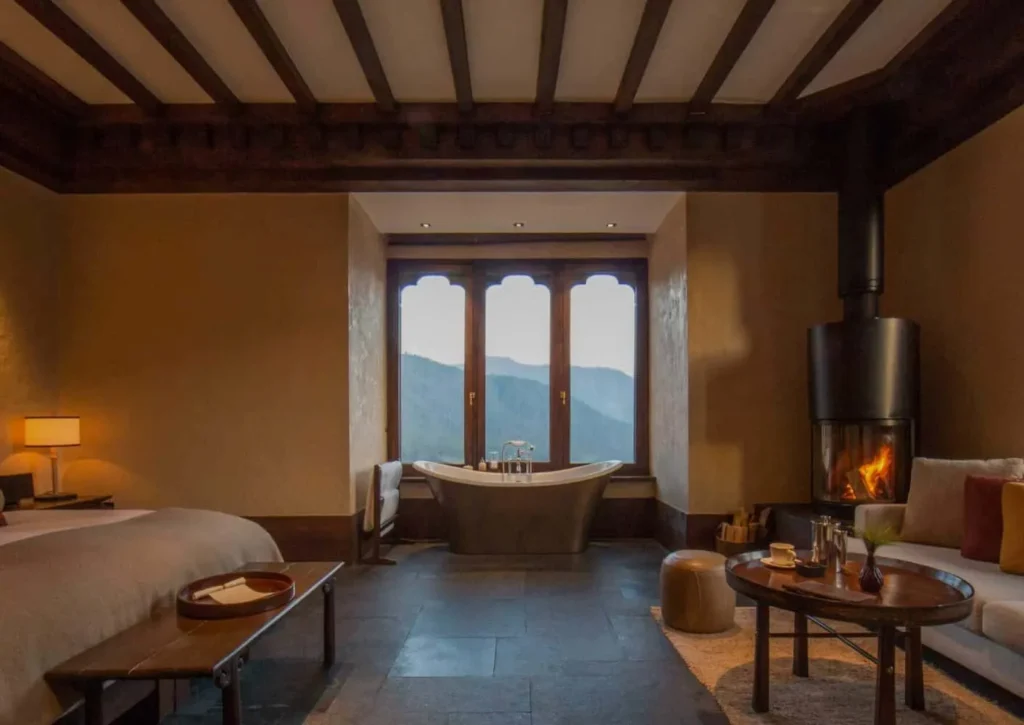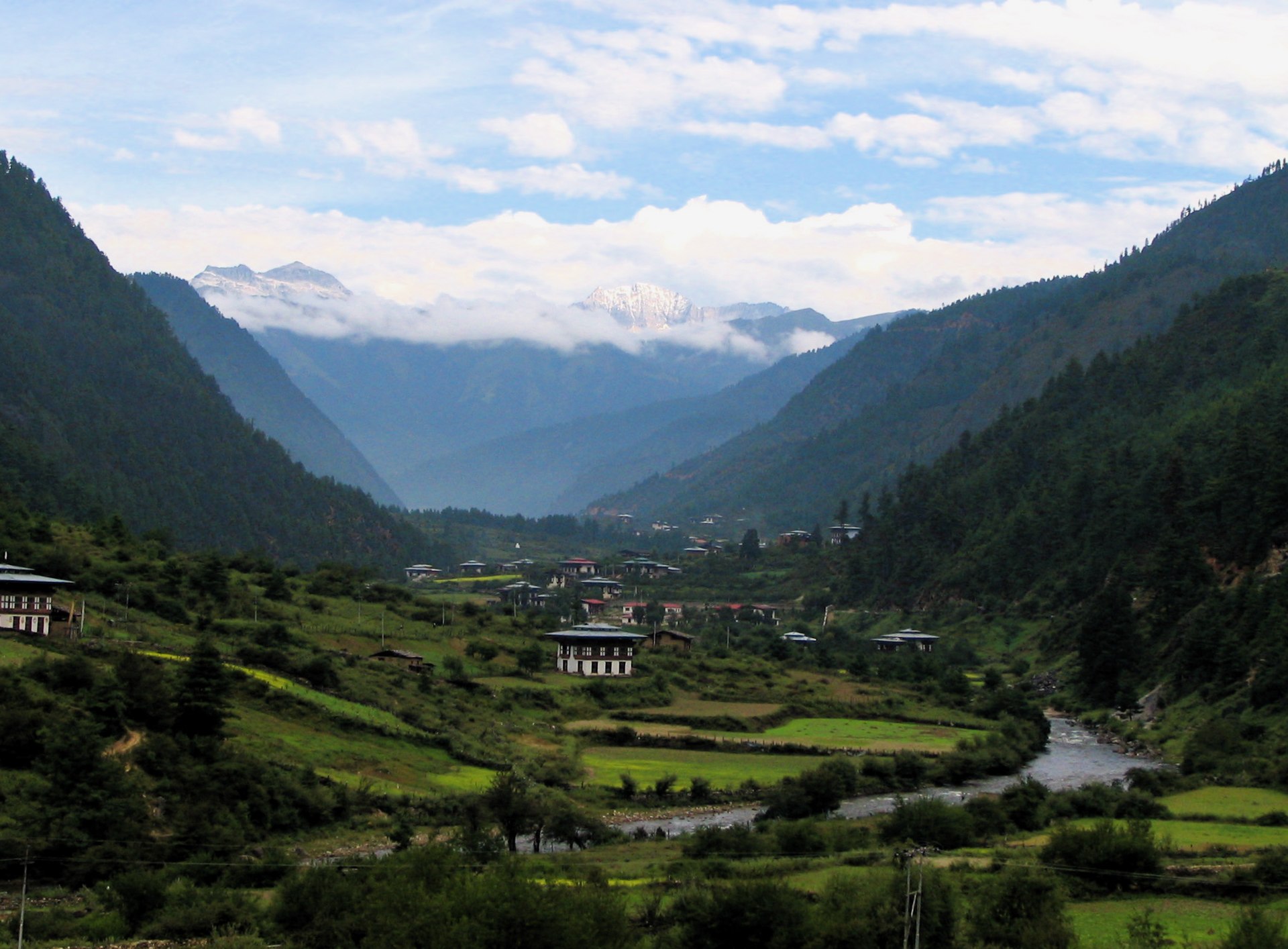Previously, it was unthought of to convert an already existing Bhutanese home for tourists. Farm stays are not only sustainable but have given rise to entrepreneurs and self-sustenance. We caught up with Deki over the phone, who is the owner of Deki Farm House in Paro.
Little Bhutan: What made you want to convert your house into a farm stay?
Deki: I saw it as another way to make money. As a villager, I don’t have many opportunities. They are limited to mostly selling vegetables. And I buy from others what I cannot grow. Even though it is different from what I usually do, there is money coming in, which is nice.

Little Bhutan: What are some of the activities provided at the farm stay? And do you have a favorite?
Deki: Hot stone bath, archery, and a tour of the house. The house is 300 years old, it’s like a museum. We live below, and the upper “flat” as you youngsters call it, is for guests. Me and my husband cook the food, and my daughter helps serve. Guests do all of these activities for free, except for the hot stone bath, as it requires quite a bit of labor. However, sometimes there are guests who only want to tour the house, so we charge Nu 100 (USD$1.2).
My favorite activity is the hot stone bath.

Little Bhutan: How many people do you employ?
Deki: It’s a family business. We all help out. On days when there are more people, say about 30 or more, I have people come to help so it depends on the day.
Little Bhutan: Were there any struggles/challenges you faced while opening your business?
Deki: Yes. I had to renovate the house, get a tub – a wooden one, and build a shed for the bath. The bath is replaced yearly. However, I should say that it didn’t cost as much. It was worth it.
Little Bhutan: Do you think farm stays are sustainable?
Deki: We now have more hotels and farmhouses. Still, the niche for farm stays is there. Previously it was easy for me to get guests. Nevertheless, as more places opened up, it became difficult. With little guests, it can hurt our business, you know. Moving forward, I would like to see how things go and make decisions based on that.
Sustainable luxury and farm stays
Newly reopened, the acclaimed Gangtey Lodge stands as an award-winning hotel offering a truly unparalleled service and experience. Situated within walking distance of the Black-Necked Crane habitat, it is surrounded by many soft and pleasant hiking spots. Among its complimentary offerings is a guided meditation class at the monk’s college!

Gangtey Tent Resort elevates glamping with a luxurious camping experience in the serene Phobjikha Valley. Standout luxury features include in-floor heating, ensuring year-round comfort and indulgence, making Gangtey Tent Resort the perfect destination for those seeking the ultimate glamping experience.
A three-century- old home located in the pristine Paro Valley. Deki Farmhouse is owned and operated by resident Deki. This charming farmhouse provides authentic Bhutanese home-cooked food and a range of other services for guests to enjoy.
Nestled close to the iconic Tiger’s Nest, this establishment seamlessly combines modern comforts with traditional charm. The camp features numerous luxury tents, each offering a tranquil vista of the majestic Tiger’s Nest. Guests can also indulge in the rejuvenating experience of hot stone bath services.
Book your trip to Bhutan today! Contact us at [email protected] or call +975 1711-2338 any time, anywhere!


